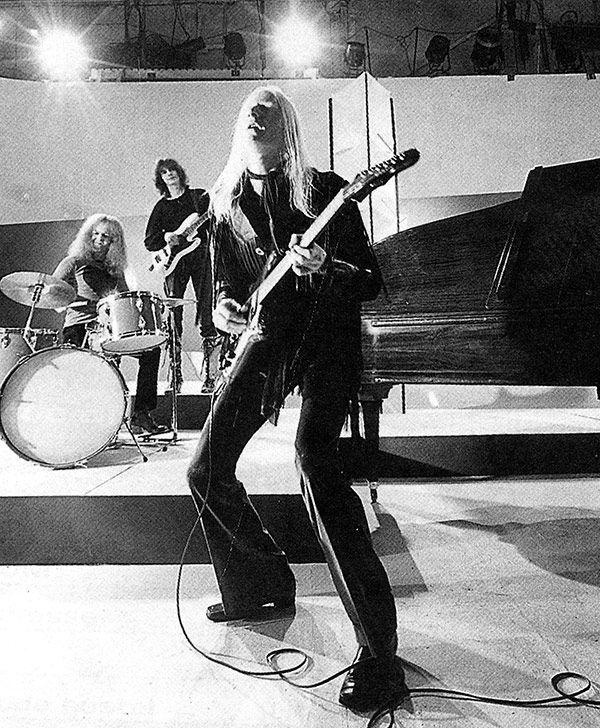ST. LOUIS POST-DISPATCH
By Michael Kuelker
Guitar savant Johnny Winter put on a no-frills, electrifying spectacle Friday night at Mississippi Nights, displaying instrumental legendry in the rock side of rockin’ blues.
Winter is a rare breed in contemporary music. Rarely do you find a musician of such consistent drawing power and influence who doesn’t have at least one mainstream hit or “classic rock” radio mainstay.
And while Winter, 48, doesn’t, his style has seeped into those of rock and blues guitarists in his 25 years of recording. While he couldn’t give more than a cursory survey of his lengthy catalog in Friday night’s 85-minute set, his work on Alligator Records in the mid-1980s, which sparked a career renaissance, was conspicuously neglected.
Winter’s shows are founded on ever-reliable guitar acolytes they offer, where songs are rather interchangeable and serve as occasions for extemporaneous jamming.
After opening with two mercurial instrumentals, Winter gave only two guesses to his latest album, the wonderful “Hey, Where’s Your Brother?”
The title is a joking reference to Winter’s brother, Edgar, and is perhaps the result of his hearing “I don’t see his albino brother” at rock festivals for two decades. Winter’s set gave just two. “Frankenstein,” and “Free Ride,” his brother’s songs.
Winter evoked cries, sighs, moans and — mostly — agitated fits of hyperboogie as he thumb-picked his guitar.
Although Winter is from Leland, Miss., when he strapped on his Gibson Firebird for some slide playing, it was purest work in genuine Chicago style.
The packed house bopped and howled in approval, with many (myself included) standing slack-jawed in awe, thinking such things about his “Look at those fingers move” during the guitarist’s inexhaustible riff runs — played, apparently, with great ease.
Winter can create more in a basic I-IV-V song frame than virtually anyone in his genre.
A crack rhythm section — Tom Compton on drums and Jeff Ganz on bass — visibly challenged Winter, with Ganz himself on one of the lengthier lead breaks.
Ganz even “dueled” with his boss and won, and he lost and earned some fans of his own for his rapid-fire fretless bass work and scat vocals.
Winter ended the show with a new, autobiographical number, a direct hit: “Johnny Guitar,” which tells the story of a man who lives to play guitar, and whose best lover in life is exceeded only by his need for his instrument. Go, Johnny, go.
